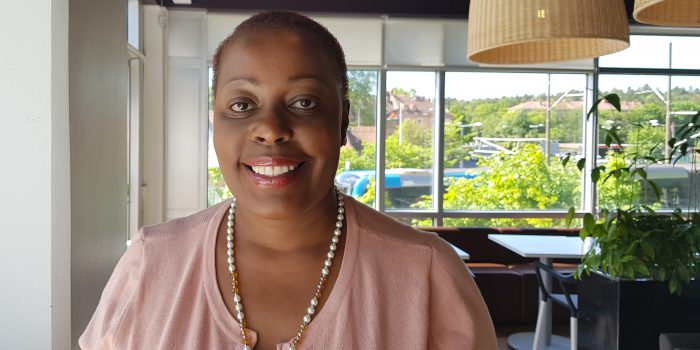In the beginning of June, after three weeks in Stockholm and one in Borås, the group’s activities in Sweden come to a close. In addition to visiting Swedac, the participants have attended a lecture by the WTO, World Trade Organisation, and have visited the National Board of Trade, SIS, Swedish Standards Institute, and RISE, Research Institutes of Sweden. The training programme is financed by Sida.
For Dr Eve Gadzikwa, head of Zimbabwe’s only private standardisation body, the training programme came at a good time. In several African countries, 2017 has been designated as the year of quality infrastructure, as a step in increasing global trade in Africa. Dr Eve Gadzikwa is very positive towards the training programme, which she believes is not just of great benefit to Zimbabwe but also for the whole region.
– Thanks to Swedac’s training programme, we have had access to the necessary tools, and we have also gained an understanding of the basic principles of the WTO. We have seen a real example of a working quality infrastructure in Sweden and have gained an understanding of the importance of accreditation, she says.
Individual development projects
After the activities in Sweden are finished, participants have to continue with a development project in their home country in order to finalise the full scope of the training programme. Dr Eve Gadzikwa works together with four other people from Zimbabwe in a project that will develop a quality infrastructure in Zimbabwe. It is a challenge she hopes they will succeed with, not least because several of the project’s participants are senior officials at the Department of Trade and Industry.
What is the most important thing she has learned during her month in Sweden?
One of the things mentioned by Dr Eve Gadzikwa is the fact that standards cannot work by themselves, but in a context.
– All of the parts must be interconnected, they are different parts of a national quality infrastructure, she says.
Reunion in South Africa
The group will meet again in six months time, this time probably in South Africa, when they will go through their own projects and get constructive feedback from Swedac. The training programme comes to a close in about a year, when Swedac will visit the participants in their home countries.
Swedac has a total of eight international training programmes during the year, either aimed at world trade or food safety. This training is based on the TBT trade agreement, which aims at removing technical barriers to trade.
The aim is to provide the participants with comprehensive knowledge on quality infrastructure linked to trade, and then to help the participants build a quality infrastructure in their own home countries.
– It’s fantastic to see all these cultures working together and then seeing the projects in their home countries going well. It’s great that Swedac can participate and support these countries in their development, says Viktoria Lindberg Martinell, who is project manager for Swedac’s international training programmes.
Swedac will follow Dr Eve Gadzikwa and report on how things have gone with her project in future newsletters.

